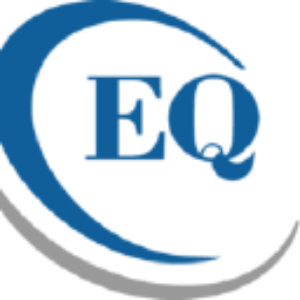Equus Shareholders Grant Authorization to Withdraw BDC Election
Equus Total Return has received authorization from shareholders, holding 55.64% of common stock, to withdraw its election as a business development company (BDC) under the Investment Company Act of 1940. This strategic move aims to transform Equus into an operating company and enhances flexibility for future acquisitions. The withdrawal must occur by January 31, 2022, contingent on entering a definitive agreement for an operating company acquisition. However, challenges such as the COVID-19 pandemic could hinder these endeavors, introducing various risks and uncertainties.
- Shareholder authorization for transformation into an operating company enhances strategic flexibility.
- Potential for increased growth opportunities through mergers and acquisitions.
- Valuation shift from net asset value to typical operating metrics like earnings and revenue could benefit shareholders.
- Reduced compliance costs not being regulated under the 1940 Act.
- COVID-19 pandemic poses risks to achieving operational and strategic objectives.
- Uncertainties regarding the ability to execute transformative transactions due to ongoing travel restrictions.
Authorization Supports Company’s Intent to Affect a Transformative Transaction
HOUSTON, Aug. 20, 2021 (GLOBE NEWSWIRE) -- Equus Total Return, Inc. (NYSE: EQS) (“Equus” or the “Company”) today announced that shareholders, collectively holding 7,511,448 shares (
The Company has examined a number of potential transactions in a variety of sectors, including energy, natural resources, containers and packaging, real estate, media, technology, and telecommunications. These reviews have included consideration of potential strategic transactions to maximize value to shareholders as an operating company not subject to the 1940 Act. The authorization granted by the Company’s shareholders allows the Board to withdraw the Company’s BDC authorization on or prior to January 31, 2022 as part of a potential strategic transformation of Equus into an operating company. Although Equus has been authorized to withdraw and terminate the Company’s BDC election under the 1940 Act, it will not submit any such withdrawal unless and until Equus has entered into a definitive agreement to acquire an operating company.
Risks and Uncertainties
The outbreak of Covid-19 in the United States in February 2020 and the subsequent resurgence of the Delta variant in 2021 has presented a number of challenges to achieving the Company’s operational and strategic objectives. Government travel bans, border closures and directives on social distancing and shelter-in-place mandates have made it difficult to conduct in-person due diligence examinations, negotiations, and other functions which are endemic to the interpersonal nature of the mergers and acquisitions process. The Company cannot give assurance that its endeavors to pursue a transformative transaction will not be adversely affected should these disruptions and restrictions on travel continue throughout 2021 and into 2022.
The transformation of Equus into an operating company is subject to various conditions, risks, and uncertainties. Such risks should be considered in addition to the items identified as “Risk Factors” in the Company’s most recent Annual Report on Form 10-K filed with the Securities and Exchange Commission (the “SEC”) on March 31, 2021.
Potential Advantages
An operating company structure, in lieu of a closed-end fund structure, could be advantageous to Equus and its shareholders in various ways, including: (i) a greater number of growth opportunities through merger with and acquisition of other operating companies, (ii) a valuation of Equus based on typical operating criteria such as earnings, revenue, and gross profit, instead of net asset value, (iii) lower proportional compliance costs due to Equus not being regulated under the 1940 Act, and (iv) greater flexibility to issue common and preferred equity, as well as other types of securities as consideration for acquisitions and growth of the Company.
Even if the Company utilizes its shares to acquire investment assets and remains a BDC, the Company believes that it could gain cost efficiencies in managing a greater number of assets such that Company expenses as a percentage of assets under management would decrease. In recent years, Company management has made significant efforts to decrease overall costs and costs relative to its net asset value including, for example, reductions in staff and in the number of members of the Company’s Board.
Forward-Looking Statements
This press release contains certain forward-looking statements regarding possible future circumstances. These forward-looking statements are based upon the Company’s current expectations and assumptions and are subject to various risks and uncertainties that could cause actual results to differ materially from those contemplated in such forward-looking statements including, in particular, the performance of the Company, including our ability to achieve our expected financial and business objectives, our ability to execute our reorganization under the Plan and complete the transactions contemplated thereby, the other risks and uncertainties described herein, as well as those contained in the Company’s filings with the SEC. Actual results, events, and performance may differ. Readers are cautioned not to place undue reliance on these forward-looking statements, which speak only as to the date hereof. The Company undertakes no obligation to release publicly any revisions to these forward-looking statements that may be made to reflect events or circumstances after the date hereof or to reflect the occurrence of unanticipated events. The inclusion of any statement in this release does not constitute an admission by the Company or any other person that the events or circumstances described in such statements are material.
Contacts:
Patricia Baronowski
Pristine Advisers, LLC
(631) 756-2486

FAQ
What recent authorization did Equus Total Return receive from shareholders?
What percentage of shares supported Equus's authorization?
What are the potential advantages of Equus's transformation into an operating company?
What risks does Equus face in its strategic transformation plans?







